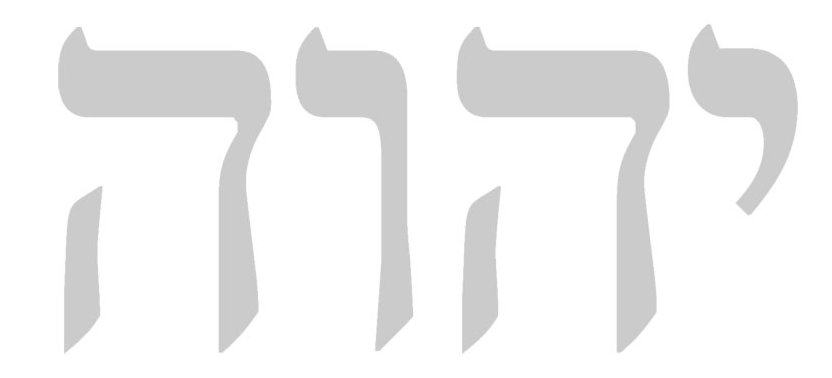How to cite this article: Ray Pritz, “The Divine Name in the Hebrew New Testament,” Jerusalem Perspective 31 (1991): 10-12 [https://www.jerusalemperspective.com/2566/].
God has a personal name: יהוה (YHVH). Like Semitic names in general, it was intended to reflect something of the bearer’s character. YHVH is related to the root הוה (h-v-h, “to be”), and reflects God’s eternity and timelessness.
The name of the God of Israel contained power and was used with reverence. The third commandment said it was not to be “taken in vain,” which meant that people were not to swear falsely by God’s name. However, this commandment came to be interpreted in its narrowest sense, and somewhere between the destruction of the First Temple in 586 B.C. and the third century A.D., people stopped using the name at all when speaking.
When the Hebrew Scriptures were translated into Greek in the third century B.C., the tetragrammaton was often substituted by the Greek word κύριος (kūrios), which means “Lord.” This causes a slight complication when we read, because there is already a word for “lord” in Hebrew, which is sometimes applied to God either in its singular form, אָדוֹן (’ā⋅DŌN), or as a plural with first person singular pronominal suffix, אֲדֹנָי (’ado⋅NĀI, “Lord”; literally, “my lords”).[3] Thus it is not always possible in the Septuagint to tell whether the original underlying Hebrew referring to God was the tetragrammaton, ’ado⋅NĀI, or some other word.
Premium Members and Friends of JP must be signed in to view this content.
If you are not a Premium Member or Friend, please consider registering. Prices start at $5/month if paid annually, with other options for monthly and quarterly and more: Sign Up For Premium
To read the next article in the “New Testament in Modern Hebrew” series, click here.

- [1] The Greek text of Matthew here uses the word kūrios twice. The Septuagint used the word kūrios to translate thirteen different Hebrew words. Therefore, when translating back into Hebrew we can choose which of those words is more appropriate to the context and situation. If יהוה is used, the modern Israeli reader will still say “’ado⋅NĀI.” Today, as in the time of Jesus, it is permitted when copying Scripture to write the tetragrammaton even though one does not pronounce it. ↩
- [2] Two seventh-century Latin manuscripts of the New Testament (β and r1) change "Lord" in Luke 2:11 into the genitive, that is, "...who is Messiah of [the] Lord," a more Hebraic expression (i.e., מְשִׁיחַ יהוה [me⋅SHI⋅aḥ YHVH]). ↩
- [3] The plural of אָדוֹן (’ā⋅DŌN) is אֲדֹנִים (’ado⋅NIM). The regular plural with first person singular pronominal suffix is אֲדֹנַי (’ado⋅NAI, “my lords”). In the Masoretic text, when God is intended and not “my lords,” the word is pointed אֲדֹנָי (one exception of 425 occurrences, אֲדֹנָי in Judges 13:8). ↩




